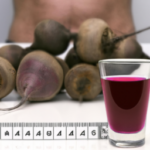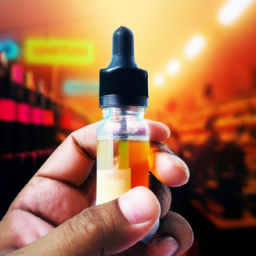Beginners Guides
Are Raw Beets Poisonous?
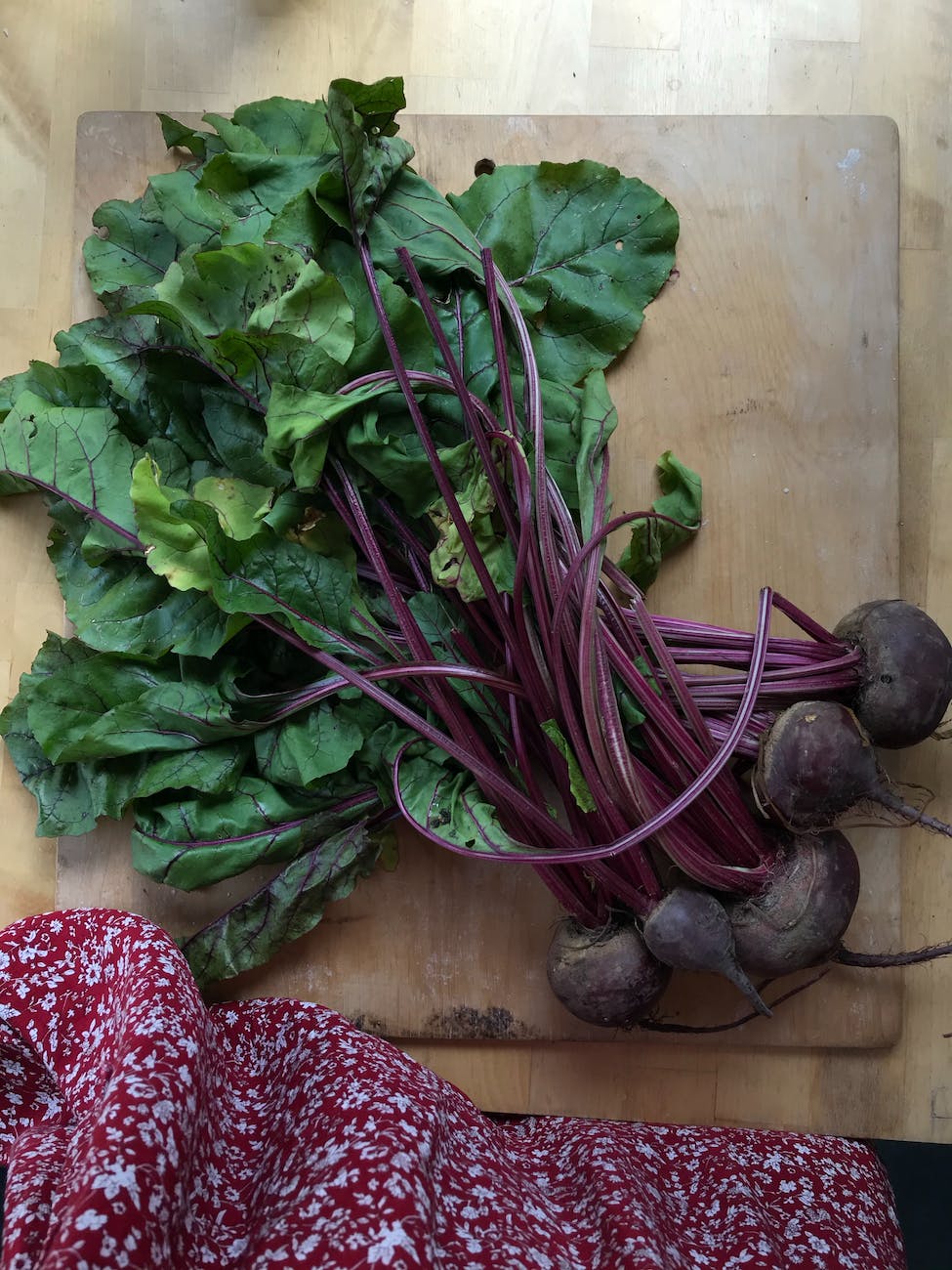
Beet urine impact an estimated 10% to 14% of people worldwide. It is more common in individuals with low iron levels or nutrient absorption issues, but it is not considered a serious health problem. Betacyanins, the pigment in beets, are the cause of beeturia. To rule out potential health issues, blood tests may be required.
Health benefits
Raw beets contain many health benefits, including improving your health and fighting inflammation. They are also rich in minerals and antioxidants. They can also lower blood pressure and help keep you regular. They are also an excellent source of iron, which can help prevent diabetes and cardiovascular disease.
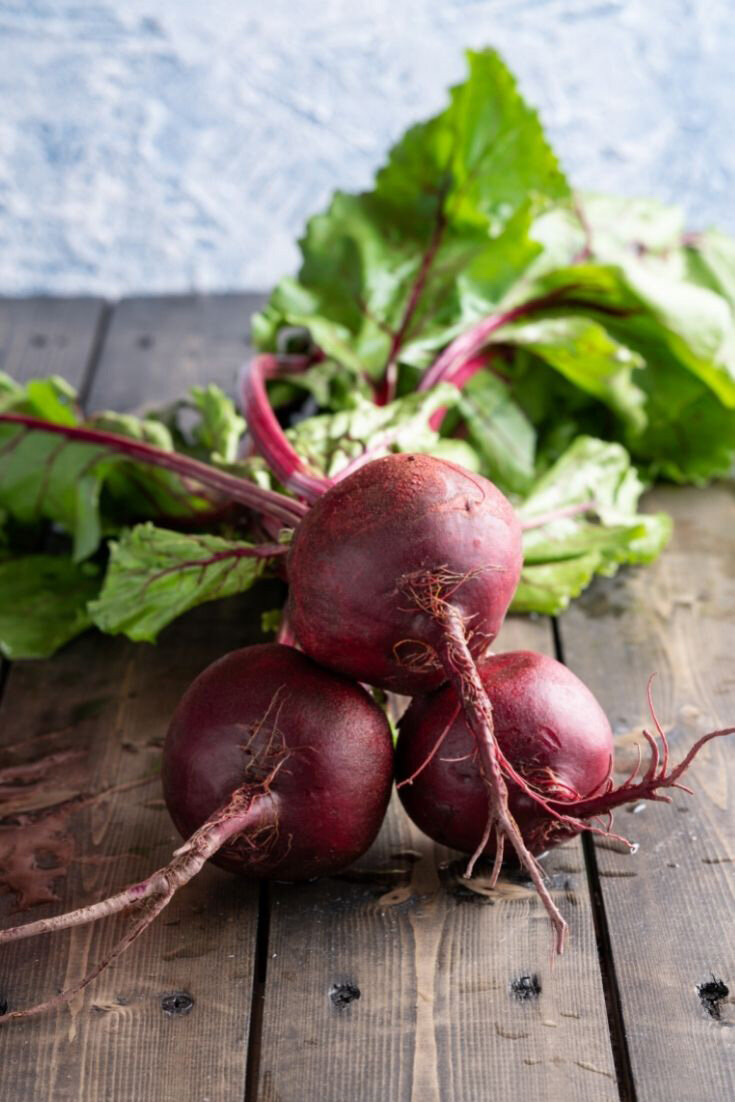
The most important reason to eat raw beets is because they contain inorganic nitrates, which can be converted to nitric oxide, a potent vasodilator. Nitric oxide relaxes smooth blood vessel muscle, allowing blood to flow freely and oxygenate more cells. The resulting increased blood flow helps strengthen muscles.
Beets can be eaten raw or cooked, although it’s best to consume them in season. Fresh beets are not overpowering, making them an excellent addition to salads. You can store them in the fridge for up to 2 weeks if you cannot purchase them fresh. You can also pickle them and serve them with salads.
Beets have almost no fat. The only fat that is present is polyunsaturated, which is considered healthy. Some preparations, such as roasting them in olive oils, will result in more fat than necessary. While beets are not known for their high protein content, they do provide a small amount of protein.
Beets are rich in vitamins and minerals. They are rich in folate, which helps the body make new cells. Folate also controls blood vessel damage, reducing the risk of heart disease and stroke. They also contain manganese which aids the body to use energy more efficiently.
Health risks
Beets are a nutritious superfood that can be added to smoothies and salads. They contain dietary fiber that helps regulate blood sugar levels and maintain a healthy weight. They can also lower cholesterol and prevent colon carcinoma. In addition, beets can improve cardiorespiratory endurance and increase blood flow. The nitrates found in beets also help strengthen muscle contraction.
Beets are a nutritious food that is rich in vitamins and minerals. However, raw beets can pose a risk to your health. Beets contain high amounts of oxalate, an organic compound that binds with minerals in the body to form salt. These salts are eliminated from the body through urine or stool. They can build up over time and cause kidney stones.
Beets are high in antioxidants. These compounds protect the body against free radicals. Free radicals are unstable oxygen atoms that try to “steal” electrons from other molecules in the body. This process is known as oxidative Stress and can cause tissue and cell damage. Free radicals can be found in food and the environment, but the body’s natural chemical processes can also produce them.
Type 2 diabetics will find beets a good choice. One study found that people who ate 100 grams of raw beets daily for eight weeks experienced improvements in their metabolic markers, glucose metabolism, and cognitive function. Beets contain high levels of folate and are a great source of calcium, iron, and other nutrients. Their high fiber content is also an added benefit, accounting for 11 percent of your daily fiber requirements.
Beets are rich in antioxidants, which can lower blood pressure. Beets are rich in dietary nitrates which have been shown to expand blood vessels. This can help reduce the risk of stroke and heart attack. Beets are high in fiber, which can help maintain a healthy digestive tract.
Alternatives to raw beets
Beets have many health benefits. They are low in calories, high in fiber, and a good source for vitamins and minerals, including potassium, magnesium and manganese. They are also high in antioxidants. And while you may not want to consume raw beets all the time, it’s worth it to eat them every so often for their varied nutrients.
Beets have a distinctly earthy flavor, and when raw, they have a crisp texture. When cooked, however, they soften and become sweeter. In most recipes, you can substitute cooked beets with raw beets. Also, you can use carrots instead, which are a good source of vitamins and minerals.
However, beets are not for everyone. Some people experience digestive upset after eating them, while others experience gas and bloating. If you’re concerned that you’re allergic to beets, be sure to talk to your doctor before consuming raw beets.
Although the beet may look tough and hard, they are actually quite delicate. Overcooking destroys their nutrients, so cook them carefully. Try steaming or roasting them to keep the nutrients intact. If you’re cooking them raw, try piercing them with a fork. If you aren’t careful, the juice from beets will stain.
Beets contain nitrates, which reduce blood pressure and relax blood vessels. Beet juice can be used to treat osteoarthritis pain. Beet juice can reduce inflammation in the kidneys. Beets are also a good source of fiber, which keeps stools regular and stools soft. Beets are also a good source of vitamin C. They also contain antioxidants which protect the body from free radicals. This can help your dog live longer. Fortunately, beets are safe for dogs in small amounts.
Beets can be eaten raw, roasted, or cooked. The leaves and roots can be chopped into thin slices and added to salads. You can even cook them to reduce their earthy flavor. For an extra flavor, you can cook them with herbs.
Precautions
When eating raw beets, make sure you wash them well. You must take care when handling beets because their pigments are sensitive to heat and water. Beets are high in fiber and antioxidants and are excellent for your health. They also contain folate and vitamin C. They are low in calories and contain high amounts of potassium and manganese.
Beets are a tough-looking vegetable that looks rough, but they are actually quite delicate. They will lose their nutrients if you cook them too long. It is best to cook raw beets for no longer than 15 minutes to retain the nutrients. If you plan to cook them further, you can use them in salads, but you should always make sure you peel them.
Although the skins of beets can be discarded before consumption, the bulb is the part most commonly eaten raw. Beets are high in fiber and antioxidants, which are vital for brain function. They may also contain nitrates which may have beneficial effects for the heart.
Beets make a great vegetable. If you don’t peel them, you can always cut them into strips and store them in the refrigerator for up to three weeks. If you decide to eat the beet greens, be sure to remove the stems and store them separately in a separate plastic bag. You can consume the greens for up to four days.
Choose beets with uniform skin and deep colors when choosing them. Also, look for bruises on the beet because the juices may be bleeding and should be washed away. You should ensure that you only buy greens from healthy beets which are high in carotenoids.
Nutritional value
Beets are packed with essential nutrients such as fiber, manganese, potassium, and iron. They are also a good source of vitamin C. They have many health benefits, including improving blood flow and lowering blood pressure. Studies have shown that beetroot juice can increase exercise performance.
You can prepare beets in the same way as spinach and Swiss chard. They are rich in vitamins, minerals, and carotenoids. Beets are best eaten during their peak season, which is June to October. This is when fresh beets are more easily found.
Folate, which is essential for DNA synthesis in cells, is found in beets. Folic acid can also help prevent neural tube defects in newborns. Although beets contain low levels of vitamin-C, they do contain vitamin-A. In fact, one serving of beets contains 30 mg of this powerful antioxidant. Vitamin-C aids the body to fight off cancer-causing free radicals.
The beets’ inorganic nitrates can lower blood pressure. The nitrates are converted into nitric oxide, which is beneficial for the heart and brain. It may also reduce the risk of heart disease and stroke. In addition, beets can improve the plasticity of the brain.
Beets are high in fiber and can slow the absorption of sugar. A cup of raw beets contains about eight to ten grams of carbohydrate. They should not be washed before eating. Instead, they should be placed in a plastic bag and refrigerated. If you can’t eat them right away, you can store them in the fridge in a tightly sealed plastic bag for up to 2 days.
Beets contain high levels of betalains, a group of powerful antioxidants. These phytonutrients may reduce inflammation and help prevent chronic diseases. They can also increase glutathione levels, which is the body’s detoxification molecule, to help your kidneys eliminate toxins.
Hi, I’m Alexander. I’m a vegan of over 20 years, and I initially made the switch for health reasons. However, as time went on, I became more and more passionate about the ethical and environmental implications of leading a vegan lifestyle.
I am the author of The Graceful Kitchen, a vegan blog where I share recipes for delicious and nutritious vegan meals. As someone who is deeply committed to living a cruelty-free life, I am also a strong advocate for using whole foods as the foundation of a healthy diet – and believe that going vegan is one of the best ways to achieve this.
Beginners Guides
5 Vegan Artists and Animal Rights Activists

Constantin Le Fou is renowned for his urban art and commitment to a vegan way of life. He began his artistic journey in Athens, Greece, his birthplace, then moved to France during his youth before eventually making Los Angeles his home in the early 1990s. While not always vegetarian, he had a significant moment that led him to embrace veganism during a traffic jam in Los Angeles in 2000.
Poulin Durocher
Poulin Durocher, a vegan artist, discovered the dairy industry while surfing social media. After watching the documentary Earthlings about animal agriculture, she decided to become vegan. She became vegan and decided to use her art as a way to express her feelings, and to educate others about the dairy industry. Her art is characterized by large-scale, realistic animal portraits. Although they are not life-size, the animals appear to be posing for the portraits.
Poulin Durocher’s paintings show a deep love for animals. To create her pieces, she uses watercolour paint. She uses this technique to bring shapes and colours to life slowly as she moves it across the paper. She also creates powerful sculptures. These works can inspire the viewer to make a lifestyle change and become vegan.
Constantin Le Fou
Constantin Le Fou, a multi-talented artist, works to promote veganism as well as the plight and welfare of animals. Many of his paintings feature celebrities such as Billie Eilish and Prince. Others feature artists such as Banksy and local LA artist Shepard Fairy. His “Obey” works feature the likeness of late wrestler Andre Roussimoff. His music is space-like and ethereal, however.
Constantin Philippou, also known as “Le Fou”, is a self-taught street art artist. He was born in Greece, and grew up in France. He then moved to Los Angeles. Although he is not a vegan by birth, he converted to veganism after learning about the conditions in factory farms. His street art mixes famous icons with a vegan message to attract attention and inspire change.
Jo-Anne McArthur
Jo-Anne McArthur is an artist and activist for animal rights. She spoke to BFM in New York City about what she does and why. She hopes her commitment to the cause will inspire others to do the same. Her new book, A Year of Captivity, is due for release in the US on October 21.
Jo-Anne approaches her subject as an investigator to ensure that the animal is present in the photograph. This is her signature style. She often uses a wide angle lens, which allows her to get very close to her subject. Using this method, she ensures the animal appears in every photograph. She publishes her work in books but is also well-known for using social media to promote her work.
Jo-Anne McArthur is dedicated to exposing animal exploitation. She has spent a lot of her life photographing the suffering of animals. Her art is a testimony to the exploiting of animals for fashion and food. Her paintings show the suffering of these animals. She has also collaborated with many non-profit organizations to raise awareness about animal cruelty.
Tommy Kane is another notable artist. His art is deliberately graphic and contrasts the suffering of nonhuman animals with the utopia that a vegan world would offer. His paintings show the plight and exploitation of animals and society. His artworks are extremely detailed, produced with an ink or acrylic paint.
Ruby Roth
Ruby Roth’s book Vegan is love, a book written by vegan artist Ruby Roth, allows young readers to introduce themselves to the vegan lifestyle. Ruby Roth’s illustrations bring the message home for young readers. The book will teach young readers about the many benefits and inspire them to join the vegan movement.
Roth’s book is available in 10+ languages and has been sold all over the world. She has studied art and American Studies and has experience in teaching young children about veganism. Since 2003, she has been a vegan. Her book “That’s Why We Don’t Eat Animals” was the first children’s book of its kind. In addition to That’s Why We Don’t Eat Animals,” she has written several other books for children, including Vegan Is Love and V Is for Vegan.
Ruby Roth started her vegan lifestyle initially for health reasons. She wasn’t initially motivated to become an activist. However, as her health improved, she began to study the vegan lifestyle and found that it matched her values more closely. Her activism and artwork have a positive impact on the world. Roth has received numerous awards for her art.
Roth’s work has been featured on major television programs including CNN, FOX, and Today. Her illustrations are often inspired by elementary school children. She also draws inspirations from the lives of celebrities and artists. Roth, despite being vegan, has been featured on many media platforms. She was even interviewed by Sue Coe who is one of the most important artists in the modern art world.
Kate Louise Powell
Kate Louise Powell, a vegan artist and born in England, is a celebrity in vegan art. She is best known for her paintings about animal rights and conservation. She has also been a vegan camp-out organizer and has worked with many animal rights and environmental groups. The English vegan activist was born October 16, 1995. She studied Illustration at Edinburgh College of Art.
Kate Louise Powell is a 23-year-old artist from the United Kingdom. She believes that veganism is the best way of caring for the planet. She is a young artist with a large following on social media. This pressure makes it difficult to produce art that appeals to a wider audience. She has also learned the importance of darker art. She prefers to work in watercolors and pencils to produce her art.
Kate Louise Powell is estimated to have a net worth of $1-5 million. She has a huge fan base and her net worth is estimated at $1 to $5 million dollars. Her net worth will grow with her popularity and fame. She has earned a good amount of money as a Pop singer.
Hi, I’m Alexander. I’m a vegan of over 20 years, and I initially made the switch for health reasons. However, as time went on, I became more and more passionate about the ethical and environmental implications of leading a vegan lifestyle.
I am the author of The Graceful Kitchen, a vegan blog where I share recipes for delicious and nutritious vegan meals. As someone who is deeply committed to living a cruelty-free life, I am also a strong advocate for using whole foods as the foundation of a healthy diet – and believe that going vegan is one of the best ways to achieve this.
Beginners Guides
5 Meal Replacement Juices to Help You Lose Weight

Juicing has become popular as a way to increase the consumption of vitamins and minerals from fruits and vegetables, as well as to detoxify the body. While it may offer short-term benefits, it is not a viable long-term solution for weight loss and may even pose health risks.
Meal replacement shakes are an excellent way to help you stick to a healthy diet. They often contain high amounts of protein and fiber that will keep you feeling full for longer.
Optimum Nutrition’s Gold Standard Protein Shake
Optimum Nutrition’s Gold Standard Protein Shake is the ideal meal replacement choice for those looking to up their protein intake. Available in chocolate and vanilla flavors, each serving provides 24 grams of protein with 24 essential vitamins and minerals so you’re guaranteed all the essentials to power through the day.
Optimum Nutrition’s Gold Standard protein shake stands out among other meal replacement shakes due to its high protein content and lack of carbohydrates and fat. This makes it an ideal option for those looking to build muscle mass and shed some pounds.
It comes in an array of flavors, such as chocolate malt and rocky road. Easy to mix up for a delicious addition to any snack or meal.
Another great benefit of this product is that it contains whey protein isolate, the purest form of whey protein available. Not only is this type of whey more digestible than other varieties but it may also aid in speeding up muscle recovery after intense physical activity.
This whey protein also contains BCAAs and glutamine, which may aid in lean muscle growth as well as improve recovery after exercise. Furthermore, it’s free from RBST and artificial growth hormones so it’s safe for anyone to use.
Protein powders come in many forms, but whey is one of the most popular and reliable choices for bodybuilders, athletes, and anyone needing extra protein in their diet. Whey comes in hydrolyzed whey peptides, ion-exchange whey protein isolate, cross-flow micro-filtered whey protein isolate and whey protein concentrate – all great choices!
Research has proven the best way to increase muscle mass and enhance recovery after exercise is by taking a whey protein supplement before, during or after your workout. Not only will it aid in muscle recovery but it can also suppress appetite so you’re less likely to overeat.
If you’re searching for a protein shake that will keep you full and satisfied, Optimum Nutrition’s Gold Standard whey protein. It is vegan-friendly, making it ideal for vegetarians or anyone else wanting to ensure they get enough protein in their diet.
Owyn’s Plant-Based Shake
Owyn’s plant-based shake is a meal replacement drink that emphasizes ingredients with significant nutritional value. It has no fillers and is low in sugar, making it suitable for those with health conditions. Furthermore, Owyn’s shake contains various other beneficial nutrients to keep your body happy and healthy.
Protein is essential for muscle building, and Owyn’s protein drink provides 20 grams of pea and pumpkin seed protein per serving. Plus, it provides 30% of your daily iron needs as well as 5 grams of fiber.
The company suggests drinking one of their protein shakes as a “quick fuel” between meals or after exercising. It contains 74 bioactive trace minerals and is fortified with vitamin C, calcium, and zinc.
This shake is made with a protein blend sourced from peas, pumpkin seeds, and flax oil that provides all nine essential amino acids the body requires for peak performance. Plus, it contains naturally occurring branched chain amino acids (BCAAs) like leucine, isoleucine, and valine which aid in muscle building and recovery after exercise.
This product is gluten-free, dairy-free, soy-free, peanut-free, tree nut-free and egg-free; plus it has been non-GMO project verified with no artificial colors, flavors or preservatives added and no stevia or sugar alcohols present.
As for fats, this serving provides 10 grams of mono-/polyunsaturated fatty acids which are beneficial for you. Furthermore, it provides 535 milligrams of omega-3 fatty acids which aid in decreasing inflammation within the body and maintaining a healthy heart.
Micronutrient-wise, broccoli provides 20% of the daily value for all vitamins and minerals. Unfortunately, it does not supply vitamin V – a common nutrient which many people do not get enough of through their diets.
Additionally, this supplement contains 125 mg of caffeine from coffee and 1 billion CFU of probiotics to aid in digestive health. Furthermore, it’s made with mostly organic ingredients and fortified with 74 Bioactive Trace Minerals to support body function and overall wellness.
Juice Plus+ Complete
Juice Plus Complete is a dietary supplement composed of powders extracted from juice concentrates of 30 fruits, vegetables and grains. It provides your body with essential nutrients it may be lacking from an ordinary diet. These can come in various forms like meal replacement shakes, bars or gummies for convenient on-the-go usage.
These nutritional supplements are meant to fill nutritional voids caused by a diet lacking fruit and vegetables, which provide abundant sources of fiber, antioxidants, vitamins, and minerals. Plus they contain Glucomannan – an ingredient which aids weight loss while keeping blood sugar levels stable.
The company states their products can reduce oxidative stress in the body, improving immune system function and helping prevent heart disease. Unfortunately, there are no clinical studies to back up these claims; therefore, if you have cancer or an autoimmune disorder it is recommended that you consult a medical professional before taking this product.
Juice Plus stands out among other meal replacements as it only contains fruit and vegetable extracts. While adding them to your diet can increase nutrient intake, it’s still important to make sure you’re getting all of the other vitamins and minerals your body requires.
Additionally, some individuals may experience gastrointestinal distress from this product. This could result in various side effects such as vomiting, diarrhea and constipation.
Juice Plus often makes unsubstantiated claims that lack scientific backing. Their marketing materials often contain inaccurate information about how their product can aid with weight loss, such as their assertion that their products reduce cold symptoms – a claim widely discredited by medical researchers and scientists alike.
Juice Plus Complete offers convenient shakes that provide balanced nutrition in each scoop – ideal for those with busy lifestyles who don’t have time for regular meals. Their shakes can help ensure you’re getting all of the essential vitamins and minerals your body needs on-the-go!
Furthermore, these vegetarian treats can be prepared with milk for a calcium-rich beverage. Furthermore, they contain protein which has been known to keep you fuller for longer. You can choose between two delicious flavors – French Vanilla and Dutch Chocolate.
Juice Plus+ Control
Juice Plus+ Control is a popular meal replacement juice available in capsule and chewable form, featuring fruit, vegetable and berry blends that have been fortified with vitamins and minerals. Furthermore, it contains glucomannan – a water soluble dietary fibre extracted from elephant yam which may aid weight loss when taken along with a low-calorie diet.
It also contains plant-based protein and fiber, which may help suppress hunger or cravings. Plus, it has calcium to support bone health. Available in many flavors such as French vanilla or dutch chocolate, this snack is sure to please everyone’s palate!
The manufacturer recommends taking two capsules of their fruit, vegetable and berry blend per day with a glass of water. Children under 13 should take one capsule daily.
Eating fruits and vegetables has several health advantages, such as reducing the risk of heart disease and cancer. Furthermore, it helps people feel full and satisfied – essential for weight loss success.
High levels of antioxidants present in this fruit help protect the body against free radical damage. Plus, they contain potassium which regulates blood pressure. Furthermore, fiber helps keep digestion regular – making them particularly helpful for those suffering from gastrointestinal issues.
They can boost immunity and reduce the number of days people get ill. Furthermore, they contain folic acid – a B vitamin essential for preventing birth defects.
The company sells a variety of other items, such as meal replacement shakes and bars. Meal replacement shakes can be beneficial for those looking to shed pounds or simply want an easy way to incorporate healthier eating habits into their day.
These shakes may be too sweet and contain too many calories, leading to an allergic reaction or gastrointestinal side effects in some individuals. Furthermore, it’s not recommended for those undergoing chemotherapy as the ingredients can interfere with their medications.
Before beginning any supplement regimen, it’s always wise to consult your doctor first. A micronutrient test can also be beneficial in determining if you are getting enough vitamins, minerals and other essential nutrients from food intake. Understanding one’s food intake also makes reaching and maintaining a healthy weight easier.
Hi, I’m Alexander. I’m a vegan of over 20 years, and I initially made the switch for health reasons. However, as time went on, I became more and more passionate about the ethical and environmental implications of leading a vegan lifestyle.
I am the author of The Graceful Kitchen, a vegan blog where I share recipes for delicious and nutritious vegan meals. As someone who is deeply committed to living a cruelty-free life, I am also a strong advocate for using whole foods as the foundation of a healthy diet – and believe that going vegan is one of the best ways to achieve this.
Beginners Guides
Detox Cleanses: Which Is The Best For Your Body?

Detox programs have become increasingly popular as people look for ways to enhance their energy and rid their bodies of toxins. However, with so many options to choose from, it can be difficult to figure out which detox cleanse is the best fit for you.
As a registered dietitian, I’m here to help! In this article, I’ll discuss the various types of detox cleanses available and provide you with recommendations based on your individual health needs.
If you’re looking to boost your energy levels or get rid of excess waste in your body, consider trying a detox cleanse! Detoxing has been shown to benefit both physical and mental health by removing harmful substances from our system and helping us feel more energetic. However, it’s important to choose the right type of cleanse for your specific goals. There are several different kinds of detox cleanses available today, ranging from juice fasts to herbal supplements.
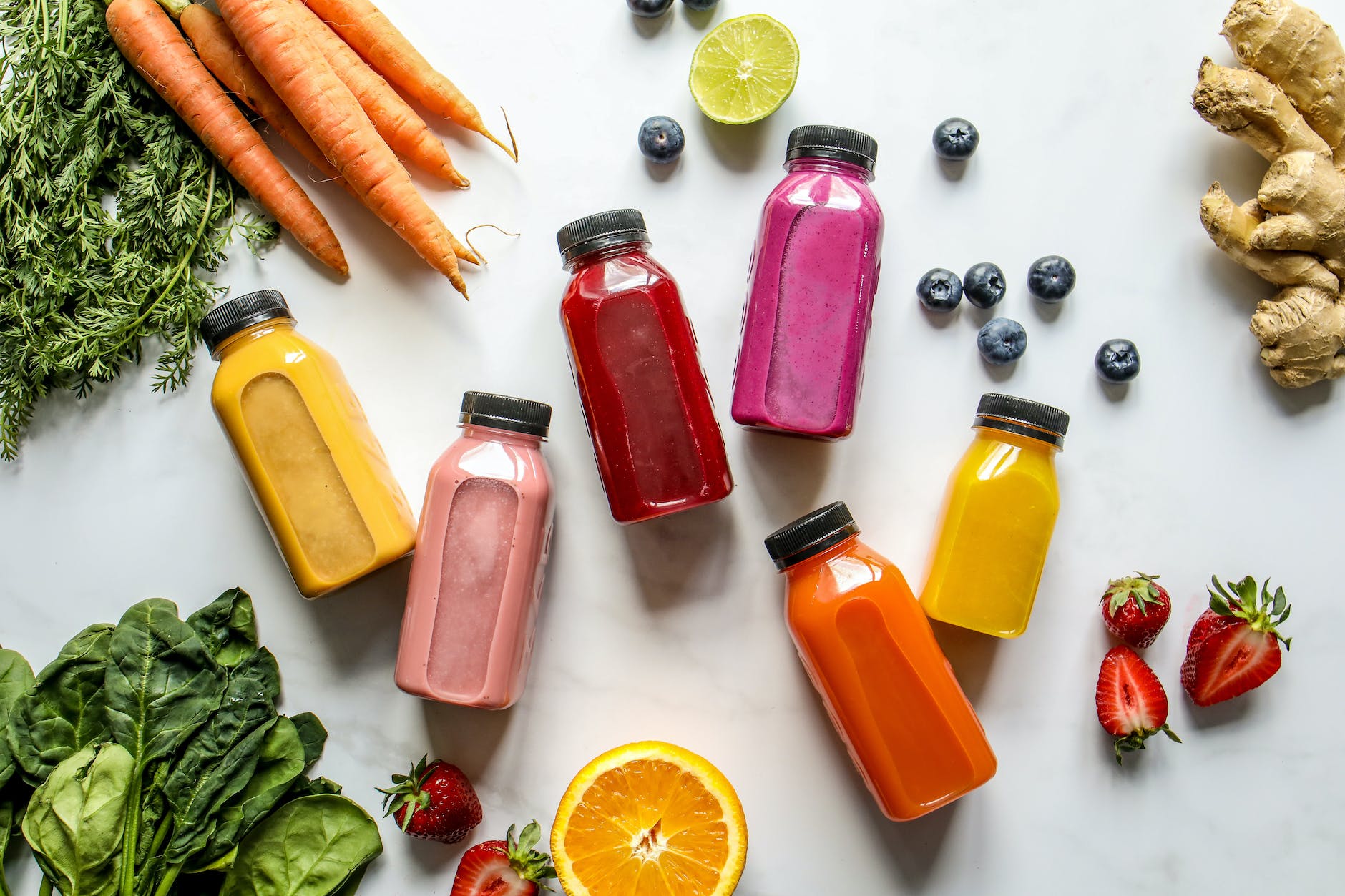
In order to determine which kind of detox cleanse is most suitable for you, it’s essential that we first understand what exactly happens during a detoxification process.
By understanding how each cleanse works differently inside our bodies, we can decide which one will give us the desired results. With my nutritionist/registered dietitian knowledge and advice tailored specifically for your lifestyle and health needs, let’s explore the world of detoxifying together!
A detox cleanse is like a reset button for the body. It’s an opportunity to rid the system of built-up toxins and jumpstart its natural detoxification process. Detox cleanses are generally based on specific diets or supplements that help support the body’s own cleansing abilities, providing nutrients and compounds to promote healthy digestion and elimination while supporting organ health and neutralizing harmful substances.
Detoxing can be done in various ways; some choose to use herbal remedies, others may opt for special juice fasts or dietary changes, but all involve giving your body what it needs to flush out toxic material from the digestive tract, kidneys, liver, skin, lungs, lymphatic system, and other organs. A well designed detox program should give you plenty of energy during the detoxification period so that you don’t feel deprived or overwhelmed by fatigue.
When considering a detox plan it’s important to choose one which will best suit your individual needs as each person requires different amounts of vitamins, minerals and electrolytes depending on their health history and lifestyle. Understanding how each type of detox works will ensure you get maximum benefit from the experience without putting unnecessary strain on your system.
Benefits Of Detox Cleanses
Detox cleanses can provide a wide range of benefits for your body. They are an excellent way to rid the body of toxins, improve digestion and boost metabolism. Not only can detoxing help you feel more energized, but it also helps to support overall health and well-being.
Along with eliminating toxins from the body, detox diets can also promote weight loss by helping reduce cravings and appetite while providing essential nutrients such as vitamins and minerals needed for normal functioning of the body.
Detox teas may also be beneficial in providing additional cleansing effects due to their herbal ingredients that have been known to cleanse the digestive tract and eliminate waste. With all these potential benefits, it is no wonder why many people turn to detox cleanses to aid in achieving optimal wellness.
By taking advantage of some or all of the many advantages provided by detoxification programs you can begin feeling better right away! The combination of improved digestion, increased energy levels, reduced cravings and greater nutrient absorption makes this type of program one well worth considering if you’re looking for ways to take your wellness journey up a notch.
So whether you’re interested in removing built-up toxins from your system or want to optimize your nutrition intake, there are numerous benefits associated with trying out a detox cleanse routine. This leads us into our next topic about types of detox cleanses available today!
Types Of Detox Cleanses
The modern-day idea of a detox cleanse has been around for centuries, but the methods have changed drastically. As we move forward in our knowledge and understanding of nutrition, it is important to recognize that there are various types of detox cleanses available today—each with its own unique set of benefits. So which one is best for you? Let’s take a closer look at some popular options:
Detox diets are often used as a way to eliminate toxins from the body while also providing essential nutrients. Popular detox diets include juice fasts or raw food diets, both of which involve eating only fruits and vegetables and avoiding processed foods.
Detox programs typically last several days and can be done at home or supervised by healthcare professionals. While these programs may help reduce toxin levels, they do not provide complete nutritional support needed for optimal health.
Whole body cleanses usually focus on eliminating toxins through dietary changes such as reducing sugar intake, eliminating alcohol consumption, avoiding processed foods, etc. These programs tend to vary in length depending on individual needs; however, most last about two weeks or more. Natural detox supplements may also be taken during this time to further aid digestion and nutrient absorption.
Finally, herbal teas and other natural remedies designed specifically for cleansing the body can also be helpful when dealing with toxic overload symptoms like fatigue and headaches.
Herbal teas like dandelion root tea and burdock root tea act as mild diuretics that can help flush out excess toxins while aiding digestion in the process. In addition to herbs, acupuncture treatments are another great option since they target specific areas of the body where toxins accumulate over time—helping them naturally break down into harmless substances before being eliminated from the system.
As you can see, there are many options available when it comes to choosing an effective detox cleanse program—and each one provides unique benefits depending on your individual goals and lifestyle habits. To make sure you get the maximum benefit out of any type of detoxification routine, it’s important to understand how to properly prepare beforehand so you can reap all its rewards!
How To Prepare For A Cleanse
Preparing your body for a detox cleanse is essential to achieving successful results. There are several steps you can take ahead of time to ensure the process goes smoothly and that you get the most benefit from your efforts.
Here’s what you need to know about preparing for a cleanse:
- Start by gradually increasing your intake of fresh fruits, vegetables and whole grains in the days leading up to the cleanse. This will help gently transition your system into a healthier diet which supports cleansing activities.
- Begin avoiding processed foods, caffeine, alcohol, sugar, artificial sweeteners and other additives that can interfere with the detoxification process or add toxins back into your body.
- Consider taking supportive supplements such as probiotics and fiber-rich supplements like psyllium husks to help support better digestion during the cleanse.
To maximize the benefits of any cleansing program, it’s important to give yourself ample time prior to starting it so that these dietary changes become second nature.
Doing this will also allow you to begin eliminating unhealthy habits before entering into a more intensive period of detoxifying activity. With these tips in mind, you’ll be well on your way towards performing an effective detoxification procedure that yields safe and rewarding outcomes!
Juicing And Liquid Diets
Juicing and liquid diets are popular among those looking for a detoxification cleanse, as they offer the body a break from solid foods. This type of diet involves drinking mostly vegetable or fruit juice in lieu of eating meals. Juice fasting is an extreme version of this diet, where only juices are consumed for several days to weeks at a time.
It should be noted that while these types of diets can help with weight loss or detoxification goals, they may not provide all the essential vitamins and minerals needed by the body on a daily basis.
Herbal supplements and teas can be added to juicing and liquid diets to provide some additional nutritional support during the course of your cleanse. While herbs do have therapeutic effects, it’s important to speak with your doctor before starting any herbal supplement regimen, especially if you are pregnant or nursing.
Additionally, certain herbs may interact negatively with medications you are currently taking so check with your pharmacist prior to adding them into your diet. With safety precautions in mind, let’s explore how herbal supplements and teas might enhance your cleansing experience…
Herbal Supplements And Teas
Herbal supplements and teas are popular among those looking to detoxify their bodies. Herbal teas offer a variety of benefits, including cleansing herbs that can help the body rid itself of toxins. Many herbal detox formulas contain herbs such as dandelion root, burdock root, and chicory root which support digestion, liver health, and kidney function.
These herbs also provide antioxidants and vitamins that can boost energy levels and improve overall health.
Herbal tea can be enjoyed in place of coffee or other caffeinated beverages for an extra boost in energy without any added chemicals or preservatives. Drinking herbal tea throughout the day helps keep the digestive system running smoothly while providing essential nutrients. It is important to remember, however, that not all teas are created equal; it is best to choose organic varieties whenever possible to ensure you are getting the highest quality herbals available.
In addition to drinking herbal teas throughout your detox program, there are many herbal supplements available on the market today that can support your cleansing goals.
These products typically come in pill form and contain concentrated amounts of beneficial cleansing herbs like milk thistle or turmeric extract. Supplements designed specifically for detoxification may also include antioxidant-rich extracts such as green tea leaf powder or grape seed extract which have been shown to reduce inflammation in the body.
By taking advantage of herbal teas and supplements during a cleanse program, you can enhance your body’s natural ability to remove toxins from its systems more effectively than just diet alone.
Transitioning into the next section about fasting, one should note that although fasts present potential risks when done incorrectly – by following safe guidelines they can be used as part of a successful detox routine if utilized correctly along with healthy lifestyle habits and dietary choices.
Fasting
Fasting is a powerful tool for cleansing and detoxing the body. It has been used throughout history to promote health, both physically and spiritually. From religious fasting rituals to intermittent fasting diets, there are numerous ways you can use this ancient practice to support your overall wellbeing.
Type of Fasting Description Intermittent Fasting Short-term fasts (1–3 days) Fasting Diet Restricted food intake or calorie restriction over an extended period of time (4+ days) Long-Term Fasting Prolonged water fasts lasting from one week up to several months in duration Water Fasting Consuming only water for a specific period of time Extended Fasting Alternating between periods of eating and not eating
When it comes to selecting the best type of fasting for your body, consider what works best with your lifestyle, as well as what will help you reach your personal wellness goals. Intermittent fasting can be beneficial if you’re looking for short-term results such as weight loss or improved digestion, whereas long-term fasting may provide more profound benefits like greater mental clarity or access to deeper healing processes.
Water fasting is popular among those seeking spiritual enlightenment while extended fasting might be helpful if you wish to cleanse toxins from your system on an ongoing basis. Ultimately, when considering which type of fasting plan is right for you, consult with a qualified nutritionist/registered dietitian who can assist in customizing a program that meets your individual needs.
Colon Cleansing
Colon cleansing has been around since ancient times. It is a process of detoxification that involves flushing out the digestive tract and eliminating any toxins, parasites, or built-up waste material. This detox diet can help improve overall health and well-being by increasing nutrient absorption and restoring balance in the body’s systems.
Many different types of colon cleanses are available today, including herbal supplements, enemas, laxatives, probiotics, and colon irrigation (also known as colon flush). Each method helps to remove impurities from the intestines while providing essential nutrients for better digestion and elimination. Herbal supplements such as senna leaf powder may be added to food or taken in supplement form to support healthy intestinal function.
Probiotics are beneficial bacteria that provide nourishment to the gut microbiome while promoting regularity. Enemas involve introducing fluids into the rectum with a tube or nozzle in order to cleanse the lower intestine. Colon irrigation utilizes water or other solutions for deep cleansing at home or in a clinic setting.
No matter which type you choose, it’s important to discuss your specific needs with your healthcare provider before beginning a detoxification regimen so that appropriate safety considerations can be made. Getting professional guidance ensures you get the most benefit from your chosen approach without compromising your health and wellbeing.
Safety Considerations
When it comes to detox cleanses, safety is a top priority. As reported by the National Institutes of Health (NIH), over 5 million adults in the U.S. have tried some form of cleansing or detox diet in the last year1. While many people are drawn to these diets for their potential health benefits, there are several important safety considerations before undertaking any type of cleanse.
First and foremost, it’s essential to determine whether you’re at risk for developing adverse reactions from certain ingredients used in detox cleanses—especially those containing diuretics, laxatives, and herbs with stimulant properties2.
Individuals who suffer from existing health conditions such as diabetes or hypertension should be extra cautious when beginning a cleanse due to its potential effect on blood sugar levels and heart rate.
Additionally, pregnant women and nursing mothers should avoid extreme dietary changes like fasting or juice-only diets4. It’s also wise to talk to your doctor about any medications that could potentially interact negatively with ingredients found in popular cleanses5.
Before jumping into a new diet trend, make sure you understand all the possible risks associated with specific types of cleansing programs so that you can maintain optimal physical and mental wellbeing while achieving desired results.
Eating plenty of whole foods throughout your cleanse is one way to ensure healthy nutrition without sacrificing balance or jeopardizing your long-term wellness goals6. With careful planning and awareness of safety precautions, anyone looking to reap the rewards of a successful detox program can do so safely and effectively7.
Benefits After A Cleanse
Now that you have the safety considerations in mind, let’s look at some of the benefits that come with completing a detox cleanse. Detox cleanses can help your body to reset and recover from any unhealthy habits or changes it has gone through. There are many potential benefits associated with doing a successful detox program, such as increased energy levels, weight loss, better digestion, clearer skin, and enhanced immunity.
When done properly, a detox cleanse can reduce fatigue by removing toxins built up in the body. This helps create more energy throughout the day by reducing inflammation and allowing your organs to function optimally.
Many people also experience improved digestion after going through a cleansing process; this is because they are eliminating processed foods that may be causing digestive issues like bloating or constipation. Additionally, many users report having healthier skin due to their bodies ridding themselves of accumulated toxins resulting in fewer breakouts and blemishes.
Lastly, when our immune system functions well we feel good overall; during a detox cleanse, our bodies naturally start fighting off illnesses more efficiently, which leads us to feel stronger and healthier than before!
A detox cleanse isn’t just about removing impurities from the body for short-term results; rather its goal should be long-lasting health improvements that will last beyond the program duration. With regular checkups from your doctor or nutritionist/dietitian along with proper rest and hydration, these positive effects on your physical wellbeing could also lead to an even greater sense of mental clarity!
Frequently Asked Questions
How Long Should I Do A Detox Cleanse For?
When considering a detox cleanse, it is important to consider the duration of the cleanse. The length and frequency of your detox will depend on a variety of factors, including your health goals and individual needs. As a registered dietitian, I recommend that you think about what kind of results you are hoping for before beginning any type of detox program.
The timeline for a detox can vary from one day to several weeks depending on how deep into cleansing you wish to go. If your goal is more general maintenance or prevention, then shorter cleanses such as 24-hour periods may be sufficient.
However, if you’re looking to make more substantial changes in your body’s chemistry, such as reducing inflammation or increasing energy levels, then longer programs ranging from 3-7 days would be necessary.
It is also important to consider the frequency with which you should do your detox cleanse – too often could put strain on your organs and cause fatigue while not doing them regularly enough might result in toxins build up over time.
For most people starting out, 1-2 times per year is an appropriate amount but this may increase or decrease based on individual circumstances such as age and medical history. During the process, I always encourage my clients to listen closely to their bodies and adjust accordingly throughout the period of the cleanse.
No matter what route you decide to take when engaging in a detox cleanse, it’s essential that you have realistic expectations since everyone responds differently based on their own unique biochemical makeup. Ultimately, finding the right balance between intensity and duration will ensure successful outcomes without putting undue stress on yourself or your body systems.
Are There Any Home Remedies For A Detox Cleanse?
Are you looking for home remedies to do a detox cleanse? Detox cleanses are an effective way of improving your overall health and can provide benefits such as increased energy levels, improved digestion, reduced inflammation, better sleep and more. There are many natural and herbal detox remedies that you can use at home to help with your detoxification process.
Fruit is one of the most popular ingredients used in homemade detox cleanses. You can make a variety of fruit smoothies or juices using various fruits like apples, oranges, pineapple, kiwi, strawberries, blueberries and more.
These drinks provide essential vitamins and minerals that will help support your body’s cleansing process. Additionally, certain herbs have been known to be beneficial when it comes to detoxing the body naturally; these include dandelion root tea and lemon balm tea which both act as gentle diuretics that help flush out toxins from the system.
You may also want to consider adding probiotics into your diet while doing a detox cleanse. Probiotics contain beneficial bacteria that can aid in improving digestive function.
They can be very helpful during a detoxification period since they assist in breaking down food properly and removing toxins from the gut. Lastly, consuming plenty of water throughout the day is key for successful cleansing as it helps keep everything moving through the body efficiently.
By incorporating these simple yet powerful home remedies into your daily routine, you can achieve optimal health benefits from your detox cleanse! Keep in mind that everyone has different needs so it’s important to tailor these tips according to what works best for you personally – but by following these general guidelines you should see great results soon!
Are There Any Side Effects Of Detox Cleanses?
Are you considering a detox cleanse? Before starting any diet or cleansing program, it’s important to understand the potential side effects and health risks. In this article, we’ll explore the possible adverse reactions of detox cleanses so you can make an informed decision about your body care routine.
As with any dietary choice, there are benefits and drawbacks that should be considered before attempting a cleanse. Most short-term detox cleanses have few significant side effects; however, long-term use may lead to electrolyte imbalances due to excessive fluid loss from increased urination and sweating. Other reported side effects include fatigue, headache, lightheadedness, nausea, cramping and bad breath — all of which usually subside quickly when the cleanse is discontinued.
It’s also important to note that some people experience more serious symptoms from prolonged use of certain detox products such as liver damage or nutrient deficiencies resulting in muscle weakness or impaired cognitive function. It’s strongly recommended that you consult with a registered dietitian prior to beginning a detox plan to ensure it will not cause any undesired health issues.
At the end of the day, your wellbeing is paramount — never sacrifice your safety for an Instagramable moment! Make sure you carefully weigh out both the pros and cons of different types of detoxing before making a commitment to one particular approach – your body (and taste buds) will thank you later!
Is A Detox Cleanse Appropriate For Children?
When it comes to detox cleanses and children, there is a lot to consider. To ensure that your child is getting the most out of their cleanse, it’s important to ask yourself if this type of treatment is suitable for them or not. This article will explore what factors you should take into account when deciding whether a detox cleanse is appropriate for children.
First off, it’s essential to evaluate how physically mature and emotionally stable your child is in order to help determine whether they are ready for a detox cleanse. If they are still growing rapidly and developing mentally and emotionally, then undergoing such an intense process may not be beneficial at this stage.
On the other hand, if your child has hit puberty and appears comfortable with making lifestyle changes that come along with taking on a detox cleanse program, this could be worth exploring further.
It’s also important to assess what kind of diet your child follows as well as any underlying health conditions they may have before considering a detox cleanse suitable for them.
A nutritionist or registered dietitian can provide valuable insight here as they understand children’s needs better than anyone else. They can also recommend specific foods or supplements tailored specifically towards their individual requirements which would make up part of their chosen detox plan. Additionally, depending on their current health status, some elements of the protocol might need adjusting accordingly so as not to cause any unwanted reactions.
Considering all these points thoroughly can help guide parents in making an informed choice about whether a detox cleanse is right for their children or not – one that takes into account both safety concerns and individual dietary needs too!
With the support from professionals like nutritionists and medical doctors alike, parents can rest assured knowing that whatever decision they make will always prioritize their child’s wellbeing above anything else.
Are There Any Foods I Should Avoid While Doing A Detox Cleanse?
When it comes to detox cleanses, there are certain foods that should be avoided for maximum results. If you’re looking to get the most out of your cleanse and feel its full effects, then avoiding sugar, dairy, processed foods, caffeine and alcohol is a must. It may seem like an impossible feat at first – but trust me when I say that with a bit of dedication and determination you can do this!
To make things easier on yourself during a detox cleanse, here’s a list of some food groups that are great to focus on:
- Fruits & Vegetables – Focus on eating plenty of fresh fruits and vegetables as they contain fiber to help support digestion and elimination. Make sure to include leafy greens such as spinach and kale which are packed with vitamins A, C, E and K.
- Wholegrains – Incorporating wholegrain carbohydrates into your diet can provide sustained energy throughout the day without spiking blood sugar levels too high. Examples of healthy wholegrains include oats, quinoa or brown rice.
- Healthy fats – Eating healthy fats such as avocado or nuts like almonds or walnuts will keep you feeling fuller for longer whilst providing essential fatty acids for optimal health.
It’s also important not to forget about hydration during a detox cleanse; drinking enough water will help flush toxins from your body more efficiently while keeping hunger pangs at bay. So don’t neglect the importance of drinking lots of water! In addition to this try adding freshly squeezed lemon juice into warm water in the morning as this helps stimulate digestion and kick-starts metabolism.
As daunting as it may sound at first, following these simple guidelines whilst doing a detox cleanse can work wonders for both short term weight loss goals and long-term health benefits; so why not give it go? With consistent effort and commitment you’ll soon be reaping all the rewards that come along with investing time in yourself by taking care of your body through detoxing!
Conclusion
In conclusion, detox cleanses are an effective way to cleanse the body of toxins. It is important to research what kind of cleanse would be best for your individual needs and consult with a nutritionist or registered dietitian before beginning any type of cleanse.
When doing a detox cleanse, it is important to take into consideration how long you should do it for based on your own health and lifestyle needs. Additionally, there may be home remedies that can help support the process such as herbs, teas, spices, etc., however consulting with a professional first is always recommended.
Furthermore, there are certain side effects associated with cleansing so if these arise it’s best to stop the regimen immediately and speak with a medical practitioner. Lastly, children should not partake in any form of detoxing as their bodies have yet to fully develop; instead focus on providing them with nutrient-rich meals free from processed foods.
Overall, detox cleanses offer many benefits when done correctly and safely under the advice of qualified professionals. Remember to avoid processed foods while on a cleanse and look out for signs of adverse reactions when taking part in one – this will ensure that you get maximum results without putting yourself at risk!
Hi, I’m Alexander. I’m a vegan of over 20 years, and I initially made the switch for health reasons. However, as time went on, I became more and more passionate about the ethical and environmental implications of leading a vegan lifestyle.
I am the author of The Graceful Kitchen, a vegan blog where I share recipes for delicious and nutritious vegan meals. As someone who is deeply committed to living a cruelty-free life, I am also a strong advocate for using whole foods as the foundation of a healthy diet – and believe that going vegan is one of the best ways to achieve this.
-
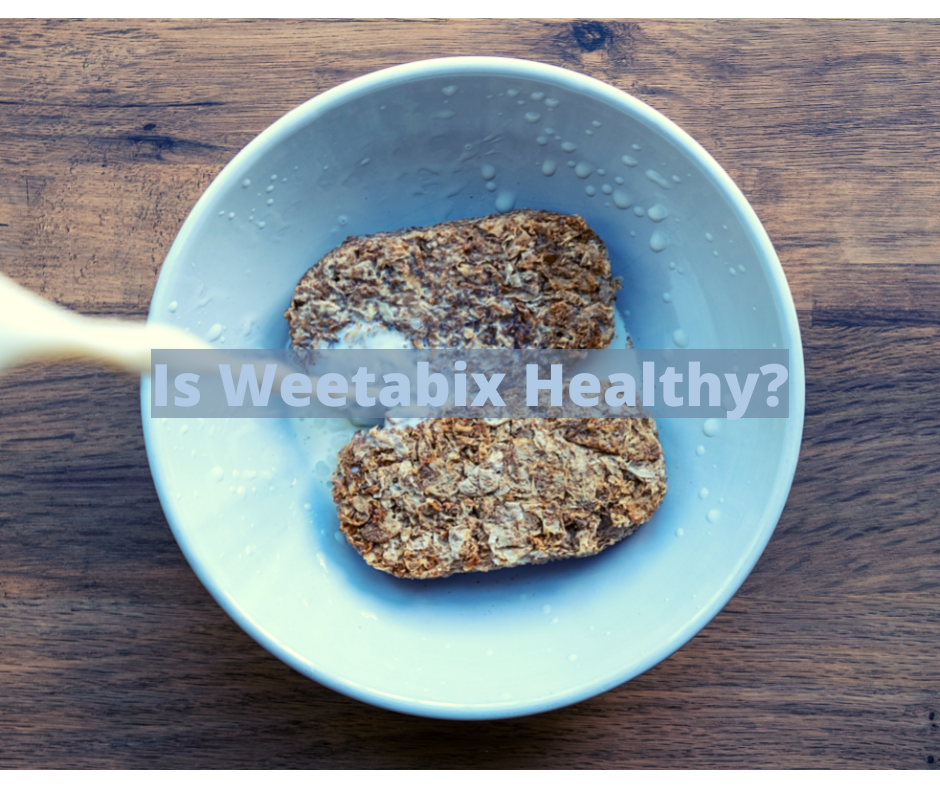
 Vegan3 months ago
Vegan3 months agoIs Weetabix Healthy? 14 Things You Should Know
-
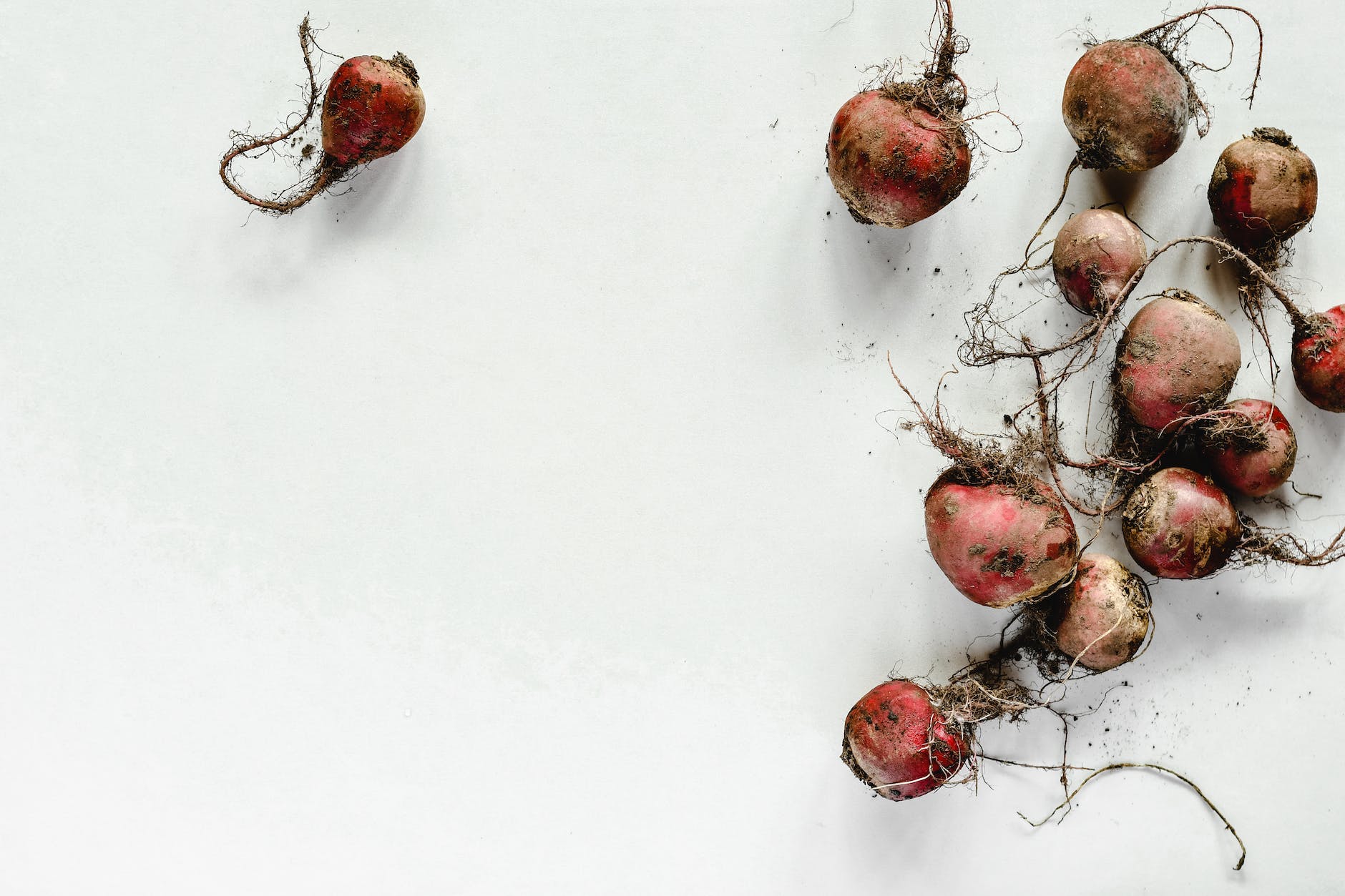
 Raw1 month ago
Raw1 month agoWhy Do Raw Beets Irritate My Throat?
-

 Beginners Guides1 month ago
Beginners Guides1 month agoIf Beets Are Soft Are They Bad?
-

 Vegan3 months ago
Vegan3 months agoIs Gatorade Zero Healthy? 33 Things You Should Know
-

 Juice23 hours ago
Juice23 hours agoHow To Fix Too Much Lemon Juice In Soup
-
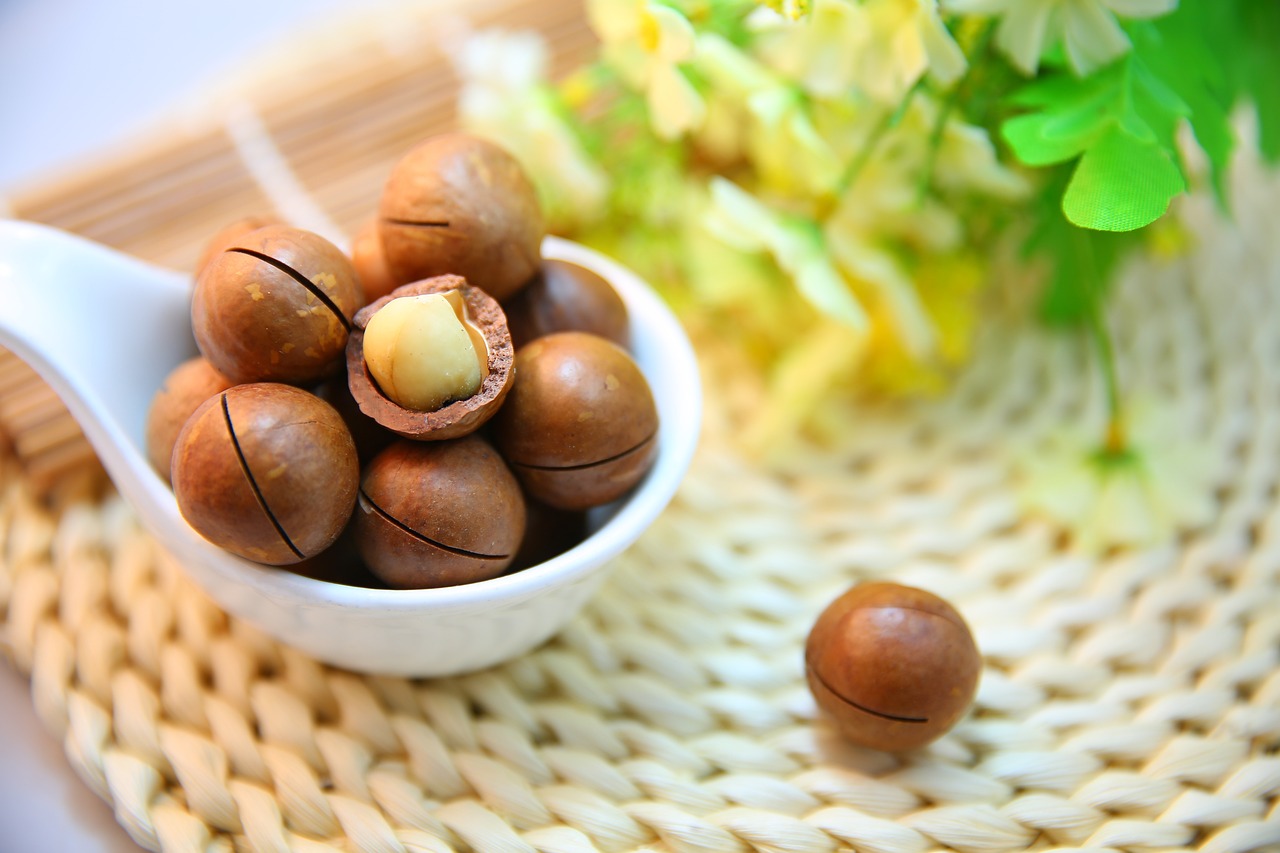
 Raw4 weeks ago
Raw4 weeks agoMacadamia Nuts – Which is Better Nutrition Raw Or Dry Roasted?
-

 Juice3 months ago
Juice3 months agoHow To Make Dmt Vape Juice
-

 Vegan3 months ago
Vegan3 months agoHow to Tell If Your Eggplant is Going Bad by Looking at the Color on the Inside





